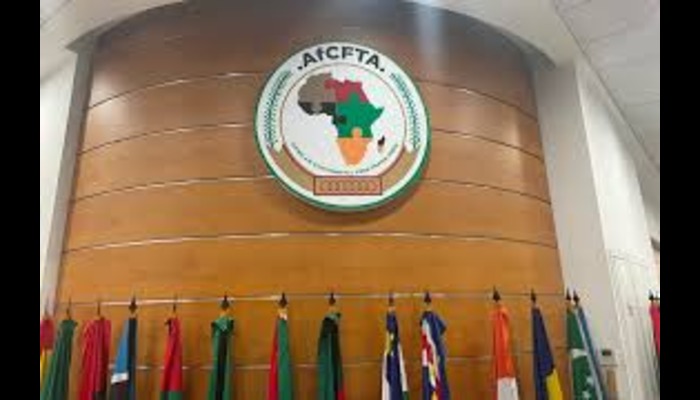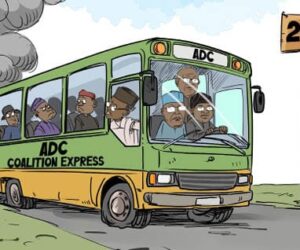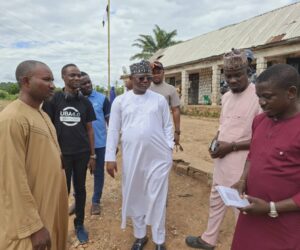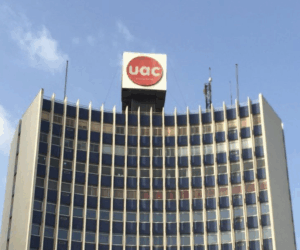Sadiq Umar, Chairman of the Senate Committees on Trade and Investment, and Rules and Business, has urged young Africans to take charge of the continent’s economic future by driving trade, innovation, and leadership through the African Continental Free Trade Area (AfCFTA).
The senator made the call in Abuja during the 2025 Africa and the Middle East Senate Association (AMESA) Summit, organised by the Junior Chamber International (JCI) Senate Association.
He stressed that Africa’s youth must be at the forefront of shaping a prosperous future built on collaboration and opportunity.
Opening his remarks, Senator Umar commended JCI’s century-long commitment to nurturing young leaders and entrepreneurs across more than 140 countries.
“The JCI Senate Association has become a vital pillar in sustaining this vision—offering mentorship, service, and strategic direction to ensure tomorrow’s leaders are equipped to serve humanity with integrity and innovation,” he said.
He noted that the summit’s theme, centered on AfCFTA, youth leadership, and emerging business opportunities was timely, especially as Africa holds the distinction of being the youngest continent, with over 60% of its 1.4 billion people under the age of 25.
“By 2035, Africa will contribute more people to the global workforce annually than the rest of the world combined,” he said.
Despite this demographic advantage, intra-African trade remains weak, accounting for just 15% of total trade compared to 68% in Europe and 59% in Asia.
Umar cited World Bank figures projecting that AfCFTA could lift 30 million Africans out of extreme poverty and boost incomes by $450 billion by 2035 if fully implemented.
Turning attention to Nigeria, Umar described the country as a natural gateway for trade and investment.
“With a population of over 220 million, a vibrant entrepreneurial ecosystem, and abundant resources, Nigeria is strategically positioned to lead Africa’s economic transformation,” he stated.
He highlighted reforms under President Bola Tinubu’s administration aimed at attracting investment, ranging from digital economy expansion and infrastructure development to trade facilitation. Nigeria’s thriving technology and fintech sector alone, he noted, has drawn more than $2 billion in foreign investment within five years.
Linking these developments with JCI’s mission, the senator explained, “Through leadership training, entrepreneurship, community action, and international cooperation, JCI is building the foundation that AfCFTA requires, young leaders who are skilled, innovative, and globally connected.”
He further challenged African youth to create impact in areas such as business and job creation, inclusive community development, cross-border collaboration, and technological innovation. For Umar, trade was not merely about moving goods but also about exchanging “ideas, opportunities, and hope.”
He called for stronger collaboration in agriculture, renewable energy, technology, and infrastructure, stressing that, “Nigeria, alongside its African partners, must continue to lead trade missions that reduce barriers, expand market access, and attract strategic investment.”
Making a passionate appeal to youth at the summit, he added, “The AfCFTA is not just a policy document, it is a call to action. Let us commit to building businesses, leading with integrity, and ensuring that economic growth leads to social inclusion and sustainability.”
He also assured participants of the National Assembly’s continued support for policies that align with AfCFTA’s goals.
“Together with organizations like JCI, we can build an Africa and Middle East that not only trades with the world but leads the world in trade, innovation, and human development,” he said.
Adding to the discourse, Jacob Oduor, Lead Economist for the African Development Bank (AfDB) in West Africa, urged African leaders to leverage the continent’s youthful population, resources, and innovation. He warned that untapped potential could quickly turn into a liability.
“Africa is the youngest continent, with a median age of 19. That’s a massive market for goods and services, and also a huge labor pool. But if this potential is not harnessed, it becomes a problem—an idle, unskilled youth population is a ticking time bomb,” Oduor said.
Also speaking, Dupe Ogunbiyi, JCI Nigeria Senate Chairperson and AMESA 2025 Chief Host, stressed the importance of leadership and effective partnerships.
“We have a lot of untapped potential that we must begin to put value to. While the developed world is looking inward, Africa must do the same. We have all the raw materials, both physical and human that we need,” she said.
She acknowledged that Africa’s challenge was not the absence of policies but their weak implementation.
“What is required for implementation is good leadership, good management, and good followership. If replicated across Africa, we can change the story of the continent,” she added.









